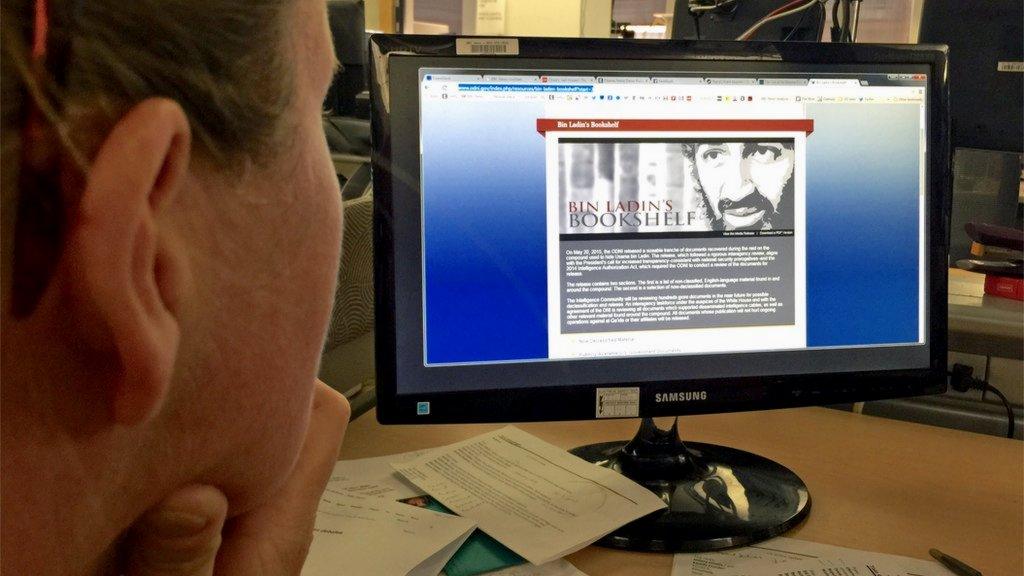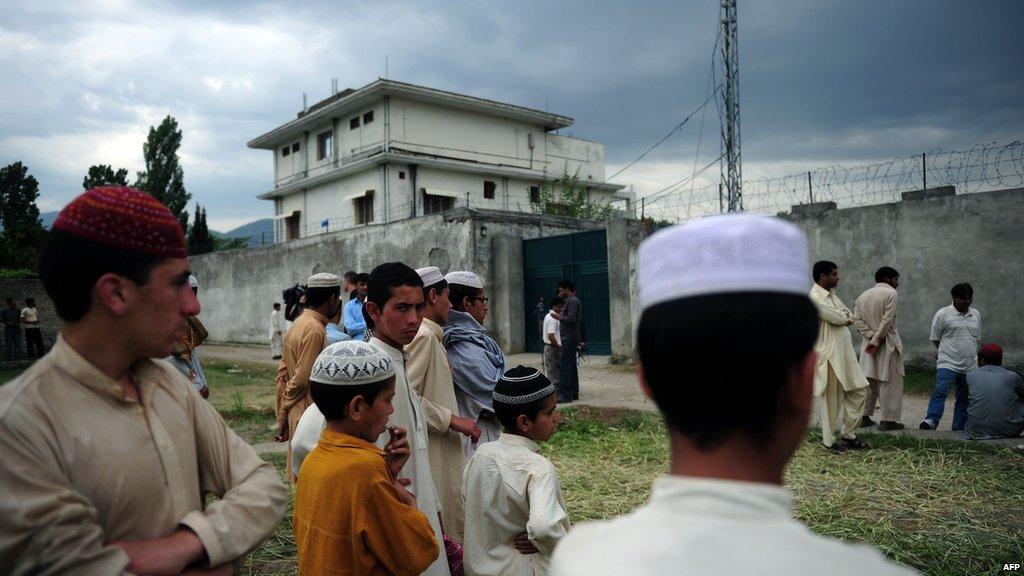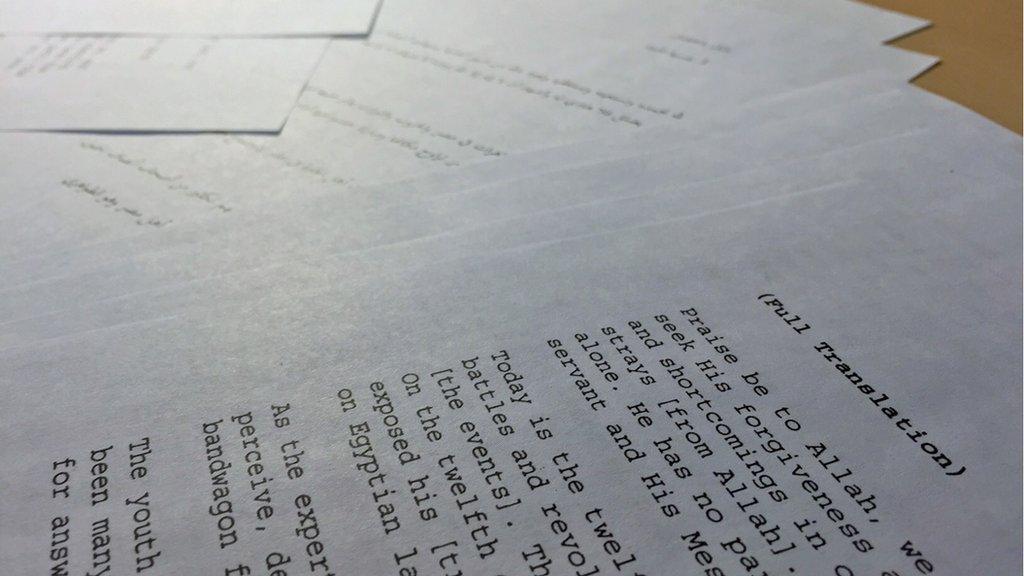Bin Laden 'focused on US to the end', papers show
- Published

The documents are now available on a US government website
In his final years, Osama Bin Laden urged his followers to remain focused on attacking the US, newly released documents show.
US officials have published, external a trove of files found at his Pakistan hideout the night the al-Qaeda chief was killed.
They include Arabic correspondence with his lieutenants, a love letter to one of his wives and an application form to join the terror group.
He also had English language books on economic and military theory.
In one of the letters, Bin Laden instructs one of his deputies to tell "our brothers" that they must remain focused on fighting Americans.
Their "job is to uproot the obnoxious tree by concentrating on its American trunk, and to avoid being occupied with the local security forces," he writes.
The Office of the Director of National Intelligence (ODNI) said a "rigorous" review had taken place before the spy agency ordered the release of the documents.

The documents were recovered at this house in Abbottabad, Pakistan
There are 103 papers and videos in all, including a number of translated letters, notes, and other materials detailing al-Qaeda operations. Many of the documents also have a version available in Arabic.
One letter mocks President George W Bush's War on Terror, with Bin Laden writing that it had not created stability in Iraq or Afghanistan.
There is also section entitled Materials Regarding France, which includes a number of academic reports and articles about France's military, politics and economy.
Also listed is a document described as a "suicide prevention guide", several English language books including Bob Woodward's Obama's Wars, several maps, and a few video game guides.
He made a video letter to one of his wives, in which he says: "Know that you do fill my heart with love, beautiful memories, and your long-suffering of tense situations in order to appease me and be kind to me".

Analysis - Gordon Corera, BBC security correspondent
They say you can tell a lot about a person from their bookshelf. But what can we tell about the leader of al-Qaeda from his? Firstly, he wanted to know his enemy - he seems to have read plenty on America including bestsellers like Obama's Wars by Bob Woodward.
Unsurprisingly, he also seemed to favour books which were critical of American power such as by Noam Chomsky or Confessions of an Economic Hit Man by John Perkins which recounted the author's claims of American companies exploiting the developing world.
There's also an element of trying to learn his opponents' weaknesses and vulnerabilities - retired British colonel John Hughes-Wilson's book on military intelligence blunders makes an appearance as do books on guerrilla warfare.
There also some books which perhaps suggest a bit of wish fulfilment - The Rise and Fall of the Great Powers by Paul Kennedy for instance.
Also on the list is Imperial Hubris by Michael Scheuer - the CIA analyst who first ran the unit dedicated to tracking Osama Bin Laden back in the middle 1990s and also, rather oddly, a book entitled A Brief Guide to Understanding Islam.

Also on the list was Checking Iran's Nuclear Ambitions by Patrick Clawson. When asked by the BBC about his feelings when he heard, Mr Clawson replied sarcastically: "Wonderful, I am glad it is read in such high circles."
Among the documents appears to be an application to join the ranks of al-Qaeda, including questions about hobbies and a willingness to be a martyr.
The documents are being released in the wake of President Obama's calls for greater transparency, said Jeffrey Anchukaitis, a spokesman for the ODNI.

Many of the documents on the US government website were in the form of English language translations, as seen in these printouts
"The intelligence community will be reviewing hundreds more documents in the near future for possible declassification and release," he said.
Some of the material that has been included in the trove was previously declassified for use in federal prosecutions.
Bin Laden was killed in a raid by US special forces on his compound in Abbottabad, Pakistan, in May 2011.
In 2012, some documents found in the operation were released by the West Point US military academy.